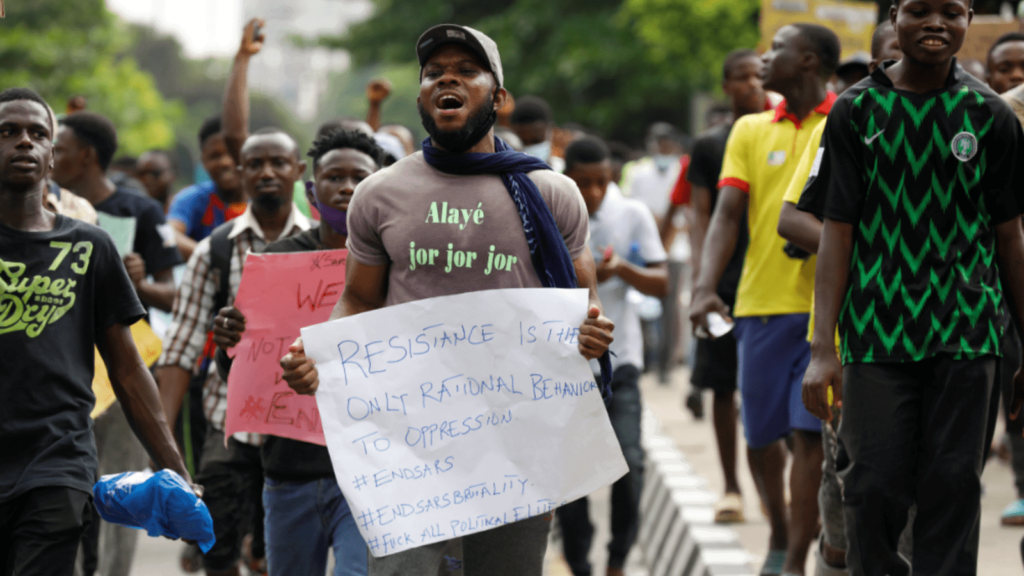As the curtains fall on 2023, we reflect on Freedom Indexes, revealing areas where Nigeria can grow in safeguarding freedom and human rights. The numbers speak, and tell there are works to be done for a brighter future.
One of our writers, recently wrote how according to the ninth annual Human Freedom Index (HFI) 2023 assembled by the Cato Institute and the Fraser Institute, placed Nigeria at 118th, which is six ranks higher than its previous rank of 124th in the 2022 HFI report. This to us doesn’t signify growth; Nigeria can do better.
Improving Nigeria’s ranking is more than a boost in numbers; it’s about making sure that everyone, regardless of background or belief, has the liberty to live their lives to the fullest. Human rights and economic rights should not be negotiable. The Nigerian government must make 2024 a year of progress in safeguarding these essential rights.
In the 2023 Index of Economic Freedom by Heritage Research, Nigeria’s economic freedom score is 53.9, making its economy the 124th freest. Its score is 0.5 points lower than last year. It was reported that Nigeria is ranked 22nd out of 46 countries in the Sub-Saharan Africa region, and its overall score is below the world average.
According to the Index, “the structural changes that are needed to develop a more vibrant private sector or achieve more broad-based growth have not emerged. Oil continues to dominate the economy, and institutional problems negatively affect other economic activity.” As we have written before, Nigeria implements economic policies that are harsh for businesses to thrive. Not only that, Nigeria invests more of its revenue in the oil sector and abandons other sectors that could have yielded returns if properly funded.
The Nigerian government needs to realize that if economic freedom is worse, economic investment can never improve.
Also, in the 2023 Press Freedom Index by Reporters Without Borders (RSF), Nigeria was stated to have “improved” six places over its previous ranking in 2022. RSF further affirmed that Nigeria is one of West Africa’s “most dangerous and difficult countries for journalists, who are often monitored, attacked and arbitrarily arrested, as was the case during the 2023 elections.”
There were records that security agents in the country have been notoriously hostile to press men, most often physically attacking some journalists while on duty and “routinely arresting them and seizing or destroying their equipment.” There is a high need for the Nigerian government in 2024 and subsequent years, to, as a matter of necessity assume its responsibilities by holding perpetrators of press freedom infringements to account.
Pertaining to democracy, Nigeria is rated partly free in Freedom in the World 2023, according to Freedom House‘s annual Index of political rights and civil liberties worldwide. For political rights, Nigeria scored 20/40 while for civil liberties, she scored 23/40, making 43/100.
According to the Index, it was revealed that observers made known “irregularities including violence, intimidation of voters and officials, and vote buying, as well as incidents where party officials directed voters on how to cast ballots at polling stations. The INEC declined to certify winning candidates in two races because local returning officers operated under duress.”
The above is a pointer that Nigeria is in a deplorable political status and she is far from becoming independent in its true sense.
It is pertinent for the Nigerian government to review policies that might be holding the country back. The leaders must be championing economic freedom, transparent governance, and a commitment to protect human rights. The moves would surely be opening doors for entrepreneurs—both national and foreign, ensuring transparency and fairness for everyone, and also respecting the citizens’ basic rights.
Economic liberty, transparent governance, and the protection of human rights should not be viewed as optional, but as imperative components of a thriving society. Nigeria’s journey toward a higher ranking on the Freedom Indexes is an investment in a future where citizens are truly liberated to contribute to the nation’s growth and well-being.













